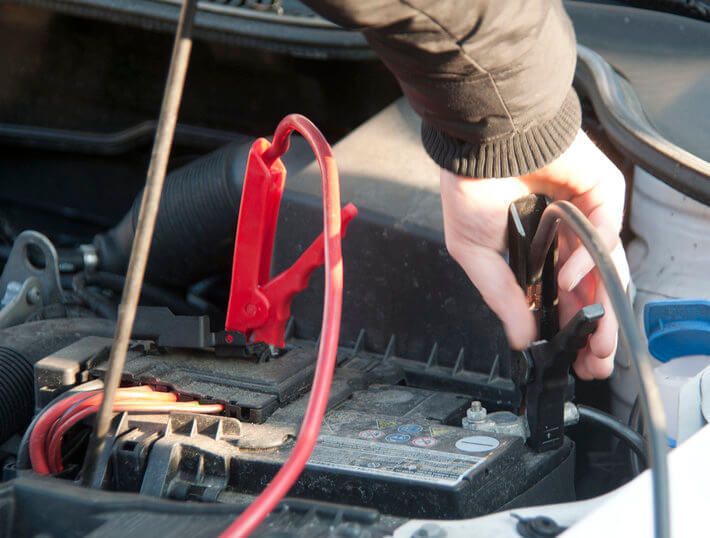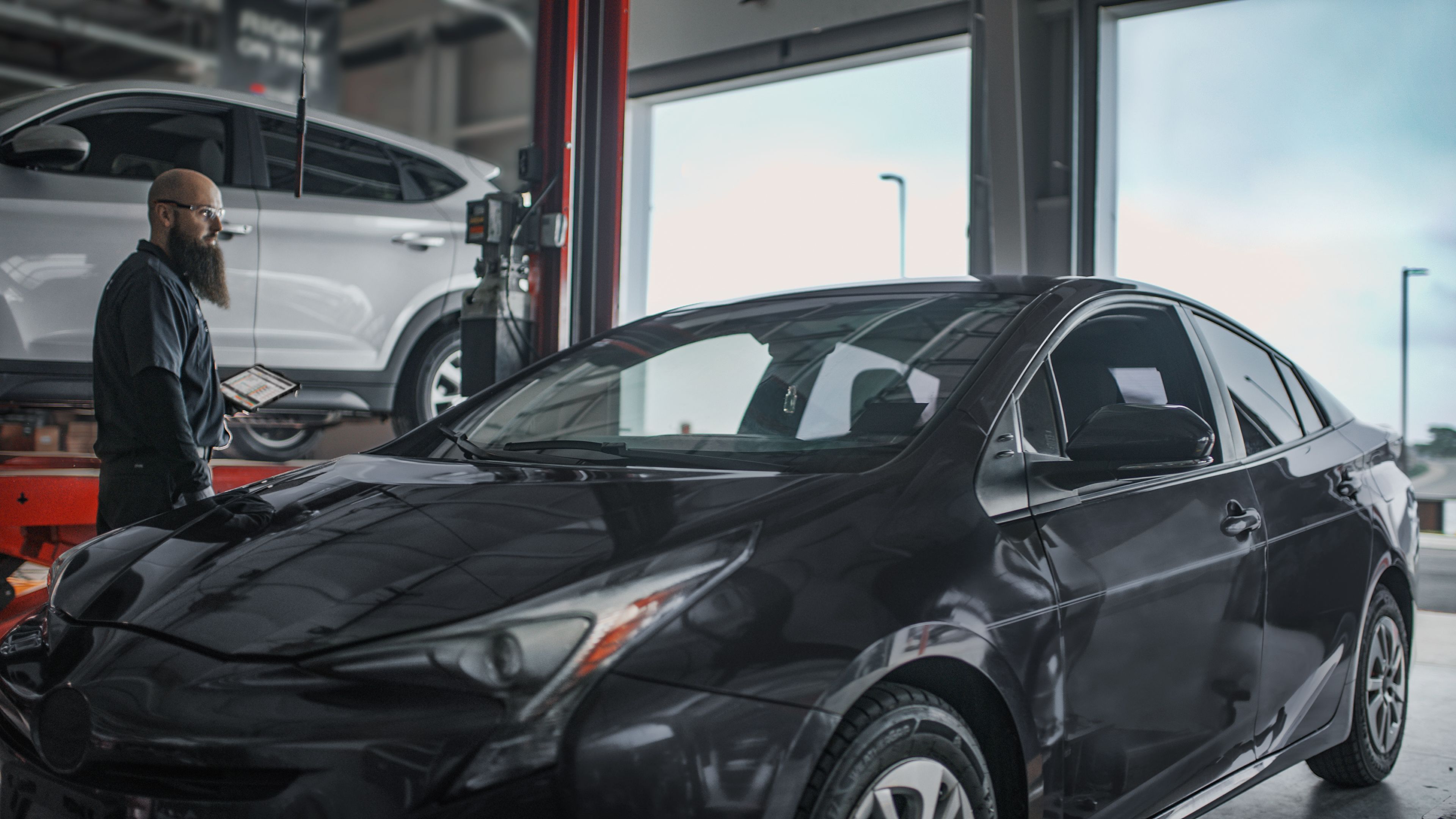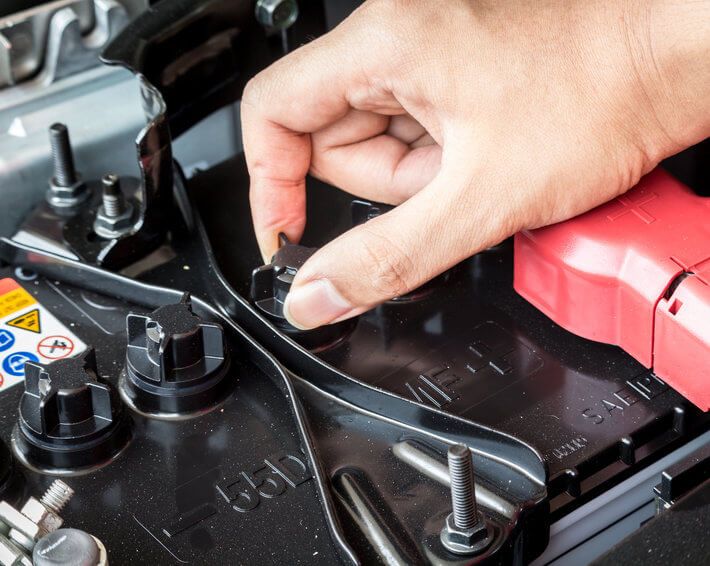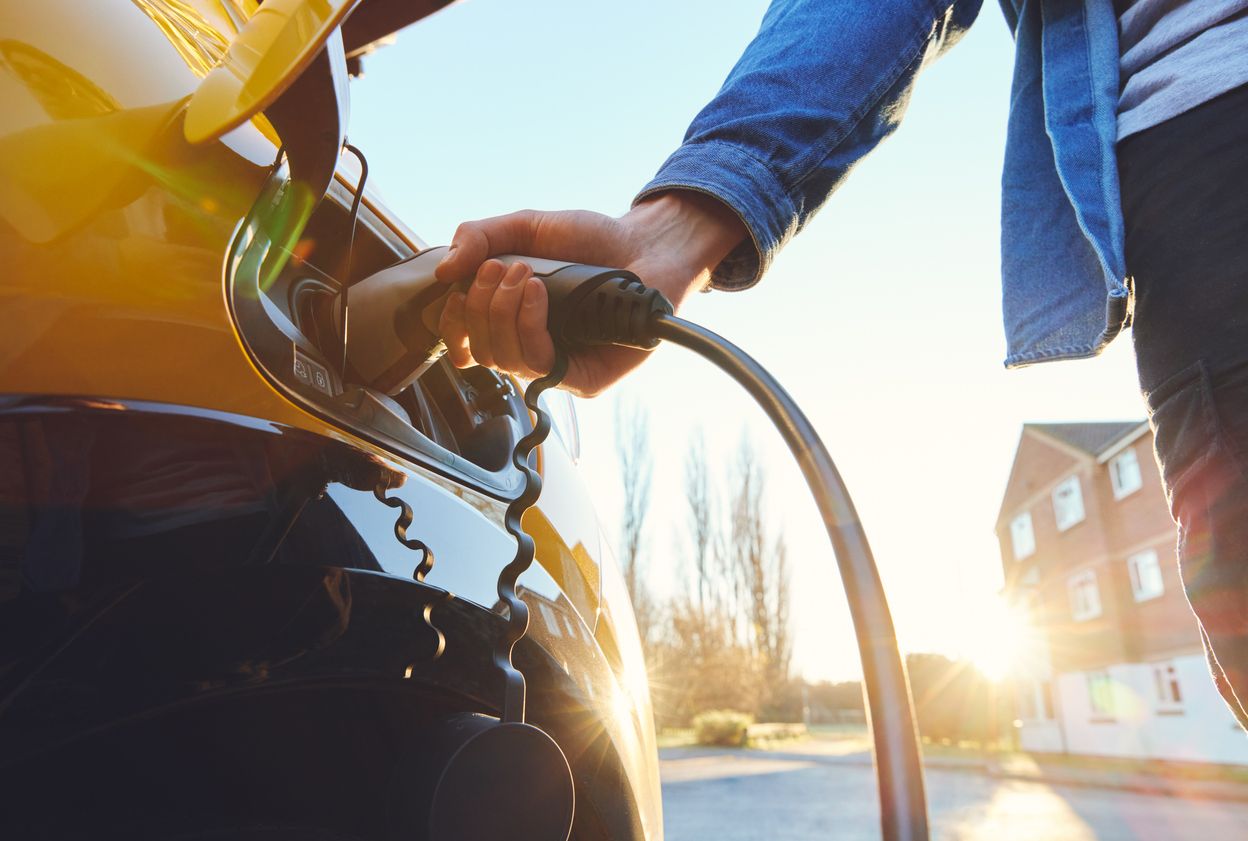A lot of things can leave you feeling drained, like an unbalanced diet, a long day at work, or even too many social interactions. And though your car battery probably isn't going to many social gatherings in its off-hours, there are still plenty of other things that may leave it feeling just as drained. Here are eight potential reasons why your car battery keeps draining, and what you can do to prevent it.
WHAT DRAINS A CAR BATTERY?
A dead car battery can be annoying, but it can also be avoided. To help prevent a dead battery, you first have to know what causes one. So, put those jumper cables aside, and check out these eight things that could explain why your car battery keeps dying.
1. You Left Your Headlights On.
If your car battery keeps draining, the first things to check are your lights. Many newer vehicles have headlights designed to turn off after a certain amount of time. But if your car doesn’t have this feature, your headlights may stay on until you either turn them off or till your car battery is completely drained.
2. Something Is Causing a "Parasitic Draw."
Even while your car is off, your battery provides power to things like the clock, the radio, and the alarm system. These things shouldn't have a major impact on your battery. However, interior lights, door lights, or even bad relays can drain a car battery when it's off.
While your engine runs, the alternator recharges the battery — which is why you typically don't have to worry about the battery dying while you're blasting the radio on your drive to work! But when the engine is off, the alternator can't recharge the battery, allowing little electrical mishaps to drain your battery entirely. Some electrical drain is normal and part of the vehicle’s engineering but other electrical whoopsies can drain the battery faster.
To help avoid unwanted parasitic draws, turn off every light and make sure your trunk, glove box, and doors are fully closed and latched before leaving the car.
3. Your Battery Connections Are Loose or Corroded.
The positive and negative terminals connected to your battery can sometimes jostle loose over time. These terminals may also become corroded. If your terminals become loose or corroded, you might have trouble starting the vehicle because your battery can't properly transmit its power! You could even damage the vehicle's electronic components.
4. It's Extremely Hot or Cold Outside.
Freezing winter weather and hot summer days may cause problems for your vehicle's battery. Newer batteries tend to be more resistant to extreme seasonal temperatures. But if your battery is older, intense cold or heat could weaken its performance or even cause it to die completely! If you notice your battery having a hard time braving the elements, come into Firestone Complete Auto Care for a free battery check. Our auto technicians will help diagnose and troubleshoot the issue.
5. The Battery Isn't Charging While You Drive (Bad Alternator)
Your car relies on your battery when you fire up the engine. But when your vehicle is running, your battery relies on the alternator to help it stay charged. If your alternator isn't working correctly or providing enough voltage, ideally 13.5 - 14.5 volts, it can’t charge your battery effectively. This charging system issue can make it hard to start your car even if you were just driving!
If your car won't start after driving, there's a chance your alternator may be to blame. Bring your car into Firestone Complete Auto Care for a diagnostics check to find out what the problem could be.
6. You're Taking Too Many Short Drives.
Cranking the engine takes a tremendous amount of power from your battery, but as mentioned previously, the alternator recharges your battery while the engine runs. If you frequently go on short drives, though, the alternator might not have enough time to properly recharge your battery between pit stops—especially if you have an older battery. In the long run, frequent short trips can shorten your car battery’s lifespan.
7. Your Car Has Been Sitting For Too Long.
Leaving your car parked for an extended period without driving can also drain the battery. Many modern vehicles have electronic systems that continue to draw power even when the engine is off. Over time, this power usage can deplete your battery's charge, especially if it's already weak or old.
8. Your Battery is Old.
Nothing lasts forever, including your car's battery. In some cases, your vehicle's battery could last up to five years, but that depends on where you live and how you drive. Extreme temperatures, frequent short trips, and general everyday use could shorten the life of your battery to two to three years. If your car battery dies quickly, even after a jumpstart, it might be time for a new one.
HOW TO PREVENT YOUR BATTERY FROM DRAINING
Now that we've covered the most common battery drainers, it's time to prevent this issue from occurring in the first place. Here are some simple tips to help keep your battery in tip-top shape and potentially extend its lifespan.
Unplug Any Unnecessary Accessories
When parking your car for an extended period, make sure to unplug any unnecessary accessories that may cause a parasitic draw on the battery. This includes phone chargers, dash cams, and other electronic devices.
Turn Off Lights When Not In Use
Always double-check that all lights and electronic accessories are turned off before leaving your vehicle. You'll also want to ensure things like your trunk and doors are fully closed when not in use. These simple habits can help prevent unnecessary battery drain and potentially prolong its lifespan.
Take Regular Drives
If possible, take your car for a 15-minute drive at least once a week to ensure the battery gets recharged fully. This helps maintain the battery's charge and prevents it from draining prematurely.
Clean Your Battery Connections
To help prevent corrosion-related problems, regularly inspect the battery terminals for corrosion and clean them using a mixture of baking soda and water. If you are unsure of how to clean your battery terminals, come visit your local Firestone Complete Auto Care and have an expert technician do it for you.
Take Extra Precautions When Leaving Your Car Sitting For Long Periods
To prevent battery drain when parking your vehicle for long periods of time, consider using a trickle charger to maintain the battery's charge level. Alternatively, you could also disconnect the negative battery terminal to prevent parasitic draws from draining the battery. The latter may require some assistance from a professional technician to reset some of the computer systems afterwards.
Prioritize Regular Vehicle Maintenance
Last but not least, don't neglect your car's regular maintenance. Have your vehicle's charging system inspected by a qualified technician to ensure that the alternator, voltage regulator, and other components are functioning properly. From checking the charging system to inspecting for signs of wear and tear on your battery, staying on top of maintenance tasks can help catch potential battery drainers before they become a bigger problem.
CHECK AND REPLACE YOUR BATTERY AT FIRESTONE COMPLETE AUTO CARE
Are you tired of bringing out the jumper cables every time you need to start your vehicle because your car battery drains overnight? Get your battery tested for free at a Firestone Complete Auto Care near you. We'll tell you how healthy your battery is and how much life is left in it. Additionally, our Complete Battery and Electrical System check can help locate the issue if something is draining your battery. And if it's time for a new battery, we'll install a reliable replacement.



